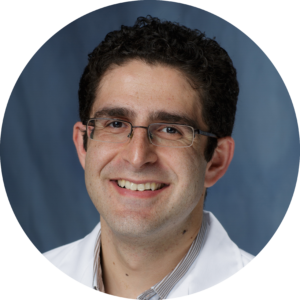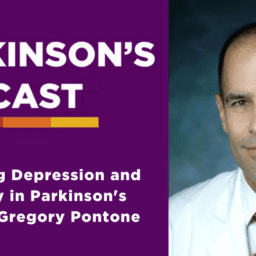Parkinson’s can affect nearly every system in your body and may touch nearly every aspect of your life. So, it’s no surprise that understanding sex and gender differences and how they impact Parkinson’s is an important consideration when it comes to living well.
While many of the issues discussed in the previous two webinars in our “Sex and Gender Differences and their Impact on Parkinson’s” series (Women and Parkinson’s and Men and Parkinson’s) may be relevant to transgender and non-binary people living with Parkinson’s, there are often unique considerations for this population. In the following webinar, Dr. Wissam Deeb and Dr. Chi-Ying (Roy) Lin discuss:
- Disclosure to Parkinson’s care team members
- Care team selection and communications
- Gender-affirming treatments (including hormones and surgery) and Parkinson’s
- Psychosocial and mental health issues in trans and non-binary people with Parkinson’s
- Advanced care directive discussions
Watch the recording below
To download the transcript, click here.
To download the audio, click here.
Show notes
- Terminology Overview
- Sexual Orientation: A person’s physical and/or emotional attraction to the same or different genders
- Gender Identity: Gender is a complex term and the definition has evolved over the years. It is a complex interplay between biological, social, and psychological factors to create a person’s perception of themselves as it relates to the social construct of a man or a woman, neither, or a combination of the two that is fluid and variable
- Sex: The biological aspect of sex, including chromosomes and external and internal sexual organs
- Legal Gender: Gender identification on your driver’s license and other legal paperwork
- Gender Expression: How a person chooses to express themselves which may or may not link to their gender identity and might change in different settings
- Cisgender: A person whose gender identity matches with the gender that has been assigned to them at birth
- Transgender: An umbrella term referring to a person whose gender matches the gender they were assigned at birth
- Gender Non-binary: Individuals whose gender identity does not fit in the binary distribution of male and female
- Gender Diverse: An umbrella term for individuals who are not in the binary or in other words, are not cisgender individuals
- To create an inclusive medical space for transgender and non-binary individuals:
- Display visually affirming cues such as LGBTQ stickers and signs
- Offer flyers that provide directions to navigate yourself within the healthcare system
- Although rare, some have noted that people will crossdress impulsively as a result of a side effect of dopamine agonists. It is important to distinguish between side-effect behavior and behavior that is a choice and a true expression of someone’s gender identity.
- There is still very limited research on Parkinson’s and the non-binary and transgender community, but if undergoing gender-affirming treatments, it is important to consider drug interplays and discuss those possibilities with your physician. It is also important to consider your external and internal organs when choosing medications for your Parkinson’s.
- It is important to note your wishes through advance directives. This not only solidifies in writing your wishes in terms of resuscitation and end-of-life care but also after-death wishes such as how you’d like to present for a memorial service.
About the speakers
 Chi-Ying (Roy) Lin, MD, MPH
Chi-Ying (Roy) Lin, MD, MPH
Dr. Roy Lin is an Assistant Professor of Neurology at Baylor College of Medicine, Houston. He completed a two-year movement disorders fellowship training at the Neurological Institute of New York, Columbia University Medical Center. Prior to this, he completed a neurology residency at the Icahn School of Medicine at Mount Sinai, where he was elected to Alpha Omega Alpha Honor Medical Society based on his leadership, academic contributions, and professionalism. Dr. Lin’s current research focuses on studying the intersection of movement and cognitive disorders, such as the cognitive and behavioral symptoms of Parkinson’s and cerebellar ataxia. Dr. Lin has always been a whole-person care advocate and practitioner. As part of the LGBTQ+ community, Dr. Lin is dedicated to promoting the awareness and addressing the unmet neurological needs for the sexual and gender minorities, in the meantime happily learning and growing along the way with the community.
 Wissam Deeb, MD
Wissam Deeb, MD
Dr. Wissam Deeb completed his MD in Lebanon at the University of Balamand. He completed his residency in neurology at the University of Massachusetts in 2015. He then moved to the University of Florida to pursue a movement disorders fellowship and stayed there in faculty until June 2020, when he moved back to UMass as an assistant professor of neurology. Dr. Deeb has a clinical and research interest in Parkinson’s, focusing on improving disparities in care, and in Tourette syndrome, focusing on incorporating technological advancements such as wearable devices in clinical and everyday care.
Live Well Today Webinar Series Presenting Partners*
*While the generous support of our sponsors makes our educational programs available, their donations do not influence Davis Phinney Foundation content, perspective, or speaker selection.




















